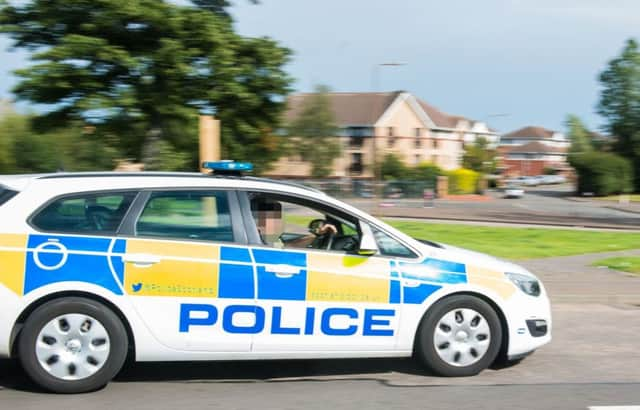Officers ‘not trained’ to drive in police chase before collision


A report by the Police Investigations and Review Commissioner (Pirc) looked into the incident in the early hours of Thursday November 22, 2018 in North Lanarkshire.
In the one-mile pursuit, officers followed the car between Cleland and Newmains before it hit a crash barrier, left the road and rolled upside down.
Advertisement
Hide AdAdvertisement
Hide AdThe driver was seriously injured and required hospital treatment.
The car was reported as having been stolen by a man - who was also reported to be drunk - around 3am and the vehicle was spotted by the officers on patrol at a roundabout in Bellside, Cleland.
Blue lights on the marked police car were activated indicating the driver to stop, but he sped off towards Newmains before crashing.
During the pursuit, one officer told the area control room he was a “standard driver”, meaning he was trained to engage.
However the report found the officer was actually a “basic driver” and not trained. The report recommended both officers involved receive refresher training. The man involved in the incident was charged and later convicted.
A second report published yesterday also called for more training of officers following the serious injury of a 31-year-old woman in Fife.
On June 22 last year she was in the house of a 34-year-old man who was on bail for two separate matters when he was arrested in connection with a robbery charge. He was taken to Police Scotland’s Dundee custody centre where it was established he had been arrested for robbery the previous month - however this information was not updated on the Police National Computer (PNC).
On release he was taken back to his house where the woman was, and she later reported he assaulted her during a domestic incident that evening.
Advertisement
Hide AdAdvertisement
Hide AdIt also emerged a condition of his bail was that he should not approach or make contact with the woman.
The Pirc said failure to update the PNC led to him being rearrested, and staff failed to carry out checks on the Criminal History System which would have flagged the breach of his bail.
A number of recommendations were made to police including reminding officers to update the PNC when a person has been traced, understanding the different information held on police systems, and that checks are in place before arrested persons are released.